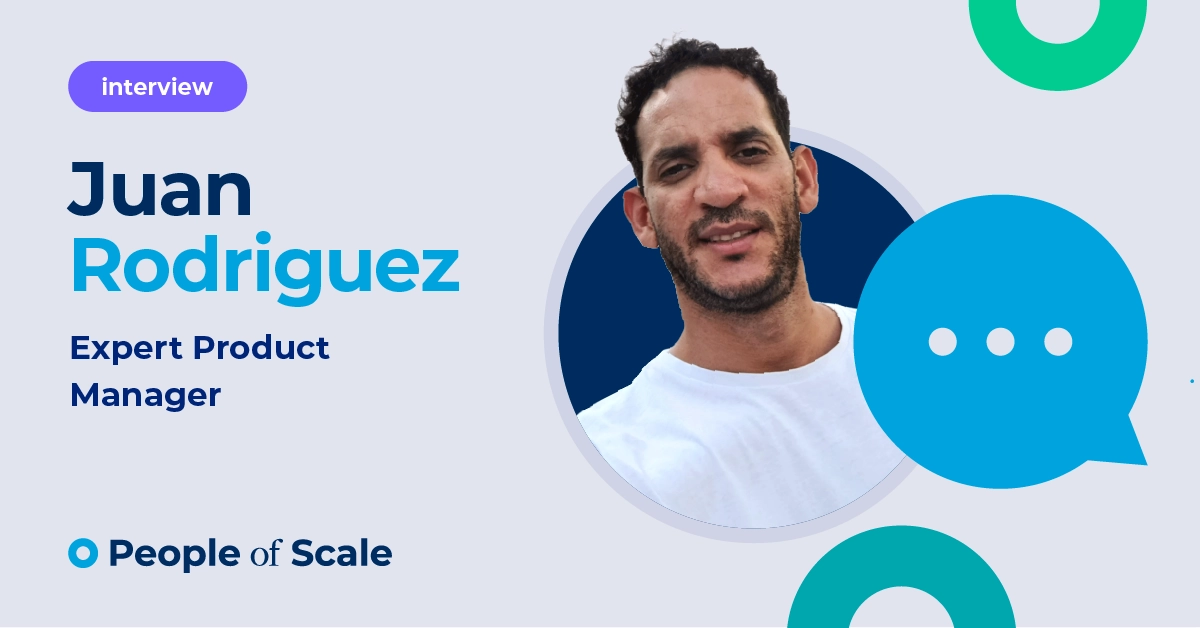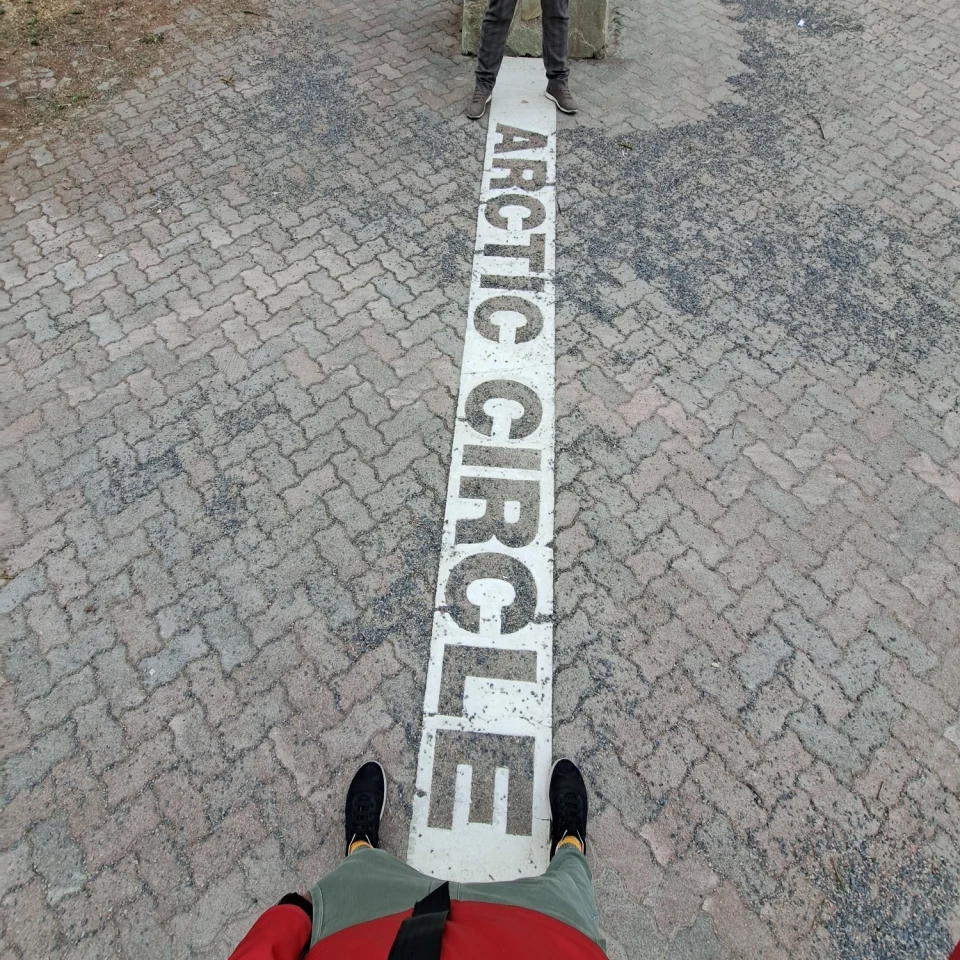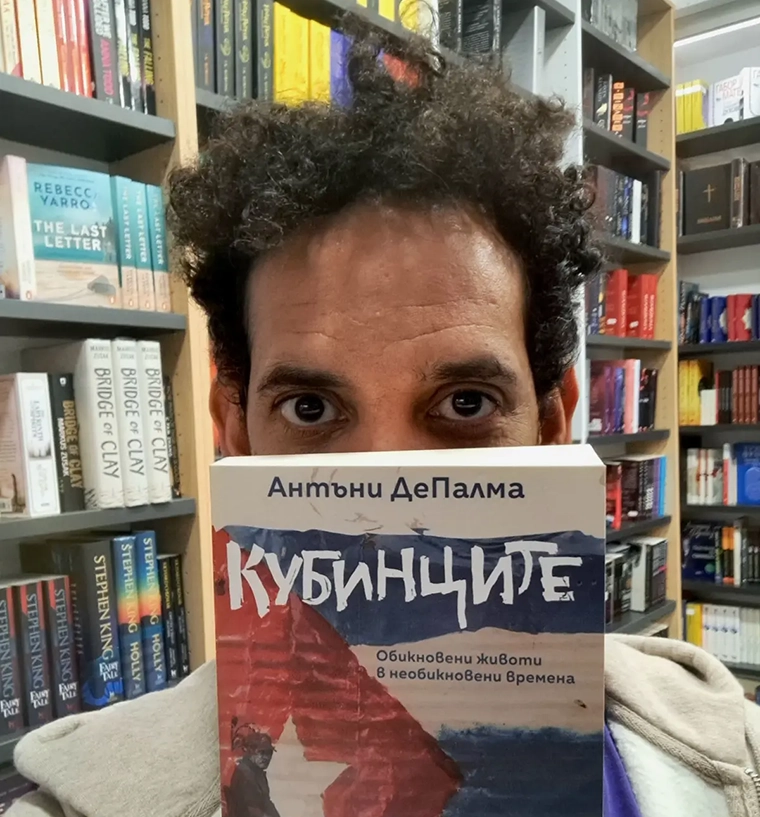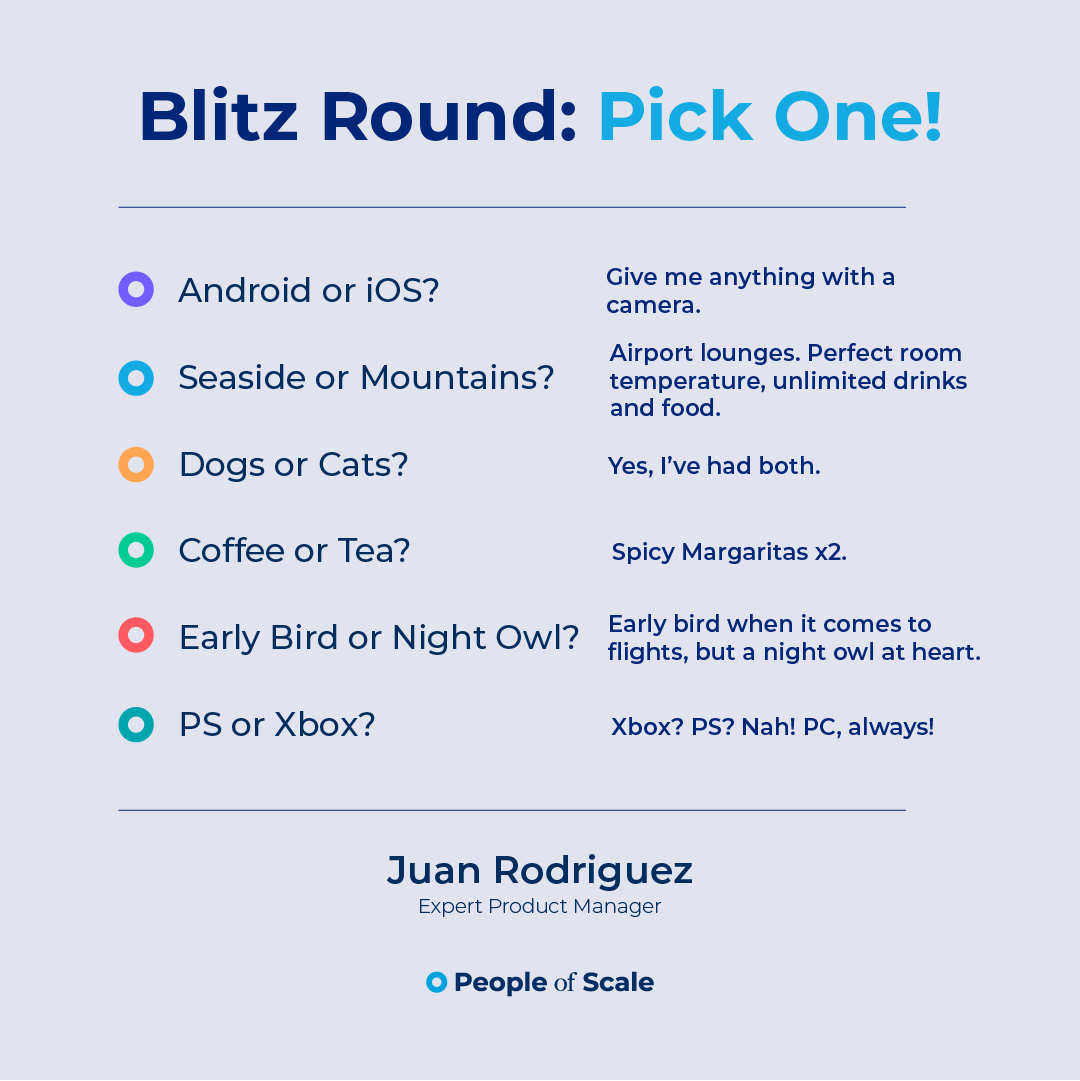Juan Rodriguez brings creative order to the shifting world of product management. As an Expert Product Manager, he’s known for his sharp instincts, strategic curiosity, and ability to turn chaos into clarity.

With a background in tech and a mindset shaped by mentors, books, and late-night “what ifs,” Juan leads with empathy, adapts with purpose, and keeps the bigger picture in focus – whether refining a roadmap or swimming laps.
Tech & Career
What first drew you to product management, and what keeps you passionate about?
Honestly, I have no awesome success story. Coming from a dev/tech background, my journey into product management began with observation and conversations with my first PM and mentor. I was fascinated when I understood that, the business, users, and technology and their relations are constantly evolving and closely tied to product definitions. Being part of the creative force that shapes and adapts to these changes makes me feel like I’m doing something truly meaningful.
Tip: Question everything. There’s no such thing as a dumb question nor a really good question.
As an Expert Product Manager, how do you balance user needs, business goals, and technical constraints?
Always reminding myself that on the other side of the screen there is a human being. Understanding what people need and helping them understand what they want, on both the business and user sides, is key.
Business <-> user relationship is a two-way street. I like to get myself involved in features that facilitate that flow with the continuous craft of new tools and refining the existing ones. The key to stay current, is the constant audit: modernization, simplification, and the occasional reinvention to avoid falling obsolete or vulnerable.
Balancing these elements is like conducting a symphony; and when you think you’ve nailed the harmony, everything changes. That’s when the real fun begins, diving back into the chaos with creativity, adrenaline, and a healthy dose of stress.
Tip: Don’t fight evolution. Embrace it.
What’s one product or feature you’ve worked on that you’re especially proud of, and why?
Picking a standout achievement is not easy but if I did it wouldn’t be a product; it would be a process. I led the overhaul of an outdated workflow that transformed the entire organization. We cut Time to Market by 70%, became more agile, and gave product teams the freedom to be more creative and responsive to change. However, I feel very proud of all the products and innovations I lead; those who soared or stumbled, in both cases I learned a lot.
Tip: Zoom out. Look at the bigger picture. Leave a legacy that improves the system, not just the output.
Product management often involves tough prioritization – what’s your personal framework for making hard calls?
Putting the business goal in front. Anything that doesn’t serve that goal becomes negotiable. I plan for multiple scenarios. While one roadmap is official, I keep five more in my head, ready to pivot when needed.
The real challenge comes when priorities shift mid-development. That’s when the PM spirit steps up, navigating pushback, negotiating trade-offs, and finally, making the call.
Tip: Normalize change. Make yourself, and your team, comfortable with uncomfortable situations.
The tech world moves fast. How do you stay sharp and continuously grow as a product leader?
You might ask me this question 10 times and I will give you 20 different answers. As a wise woman once said, “Read a book!” And I do, I read about trends, history, sci, fi, fantasy, business, you name it. Many of today’s techs and innovations: voice assistants, video calls, mobile tech; were imagined in fiction long before they became reality.
When I’m not reading, I’m listening: podcasts, webinars, conferences, lectures. I attend those events not just because of who the speaker is, but also for the hallway chats afterward, where real insights and shared experiences happen. I surround myself with people who challenge me intellectually. I believe mentors aren’t defined by age or title, but by knowledge.
Fun fact: I formatted this Q&A using MS Copilot, because staying sharp also means knowing when to use the right tools.
Tip: Reading is fundamental. So is curiosity.

Leadership & Growth
What’s one leadership lesson you’ve learned that you wish you knew earlier?
Professionally, I struggled at the beginning with imposter syndrome until I realized that everyone goes through it at some point in their career. Sometimes you’ll feel like you’re winging it while everyone else has it figured out. Spoiler alert: they don’t. The sooner you realize that, the sooner you can stop doubting yourself and start owning your space.
Tip: Confidence isn’t about knowing everything; it’s about being okay with learning as you go.
How do you foster collaboration between engineering, design, and business teams?
Respect and curiosity. Every voice matters. Every perspective brings value. No opinion should be dismissed at first glance, and no question is too basic to ask. When people feel heard, they eventually start asking less and contributing more.
Tip: Build a culture where “Why?” and “What if?” are welcome at every table.
What advice would you give someone who wants to break into product management?
I would tell them to start by being endlessly curious. Learn the language of tech, design, and business. Ask questions. Shadow PMs. Volunteer for cross-functional projects. And most importantly, don’t wait for permission to think like a Product Manager.
Tip: Product thinking is a mindset, not a job title.
How do you personally define success – both for a product and for yourself as a PM?
Defining success as recognition from your peers. Not just the public applause, but the acknowledgment that your work made a difference. When your team, the users, or the stakeholders say, “This works because of you,” that’s when you know you’ve made it.
Tip: Recognition isn’t always loud. Sometimes it’s a quiet nod or look across the meeting room.
Who has influenced your approach to product management the most?
Each and every one of my mentors has helped me grow. They helped shape my thinking, challenged me to grow, and trusted me before I fully trusted myself. Their openness, experience, and belief in me gave me the confidence to build my own path.
Tip: A good mentor doesn’t give answers, they help you ask better questions.

Beyond the Code
If you could build or manage any product in the world (no limits) what would it be?
My abstract dream: I’d dive into the Hollywood film industry, specifically, the intersection of AI and entertainment. I can imagine a world where actors can speak any language, in their own voice, with perfect lip sync and emotional nuances.
The real-world fix: The mobile app of my bank. It’s outdated, clunky, and anything but user friendly. I’d love to lead a full, scale redesign, modern UX, intuitive flows, and features that make you feel like you’re living in the future.
What’s a hobby or passion outside of work that helps you recharge or think creatively?
On the surface, swimming may seem simple, but for me, it’s a sanctuary. When I swim it’s just me, the water, and the rhythm of movement. It’s a moment of solitude where I’m fully present and constantly moving forward. It reminds me that progress, like staying afloat, depends on no one but myself.
If you could have dinner with any inventor or entrepreneur, who would it be – and why?
Nothing compares to the gratitude I feel for the invention of the ergonomic chair. I’d genuinely love to thank whoever designed it for trying to save us millennials from back pain. Nevertheless, what excites me even more is sitting down (comfortably) with anyone who speaks passionately about what they do.
What’s one mantra or mindset that guides you through challenging projects?
There is something in the phrase “It gets better.”
It’s simple yet powerful. Sometimes, just believing that better is coming is enough to keep moving forward.
What’s your go-to way to unwind after a long day of product meetings and decisions?
Healing, for me, often begins with talking about work. It sounds counterintuitive but sharing the day’s challenges, hearing different perspectives, and even venting a little helps me decompress. It’s like a mental reset, processing what happened, learning from it, and gearing up for the next round.

Blitz




